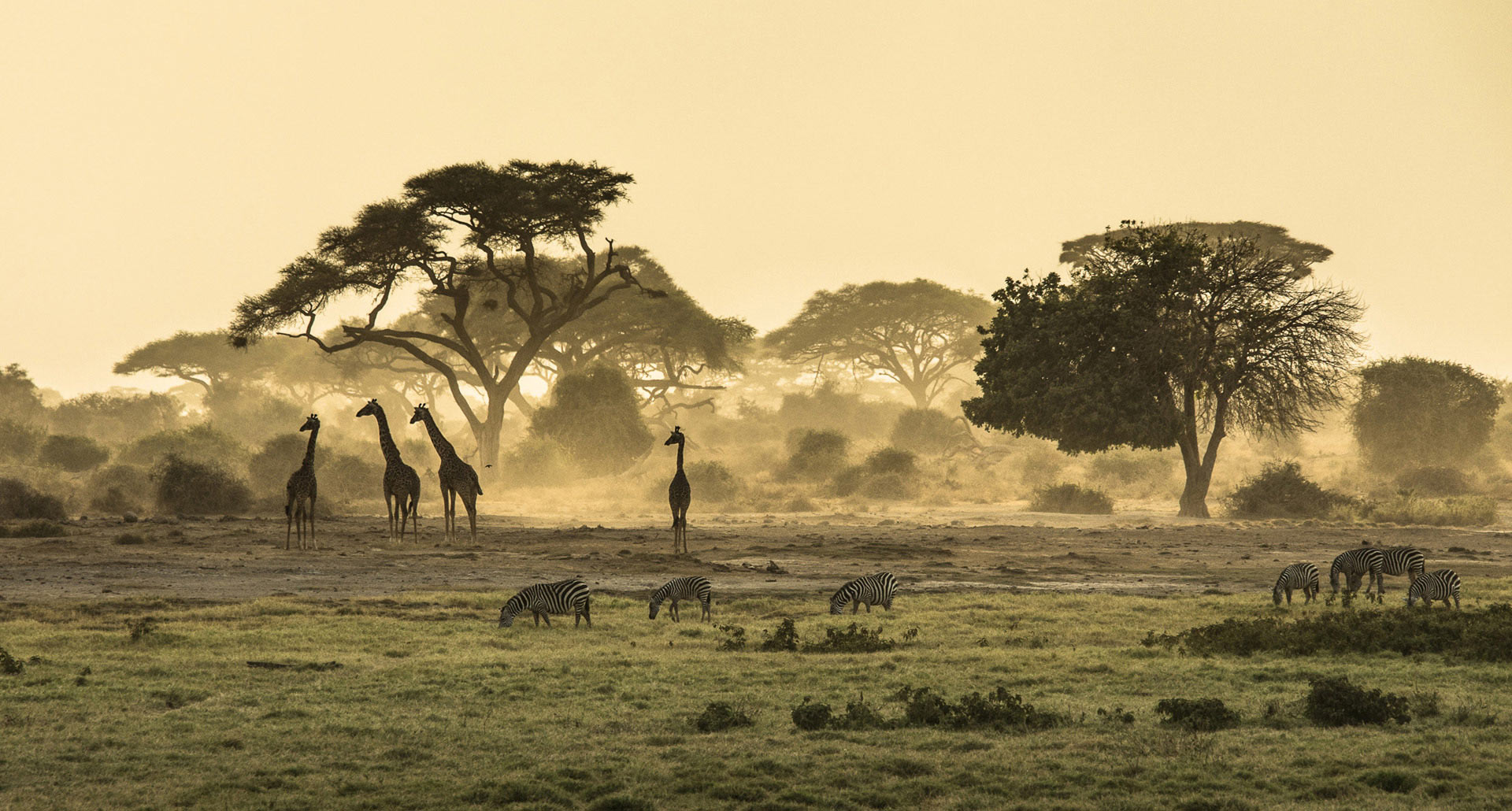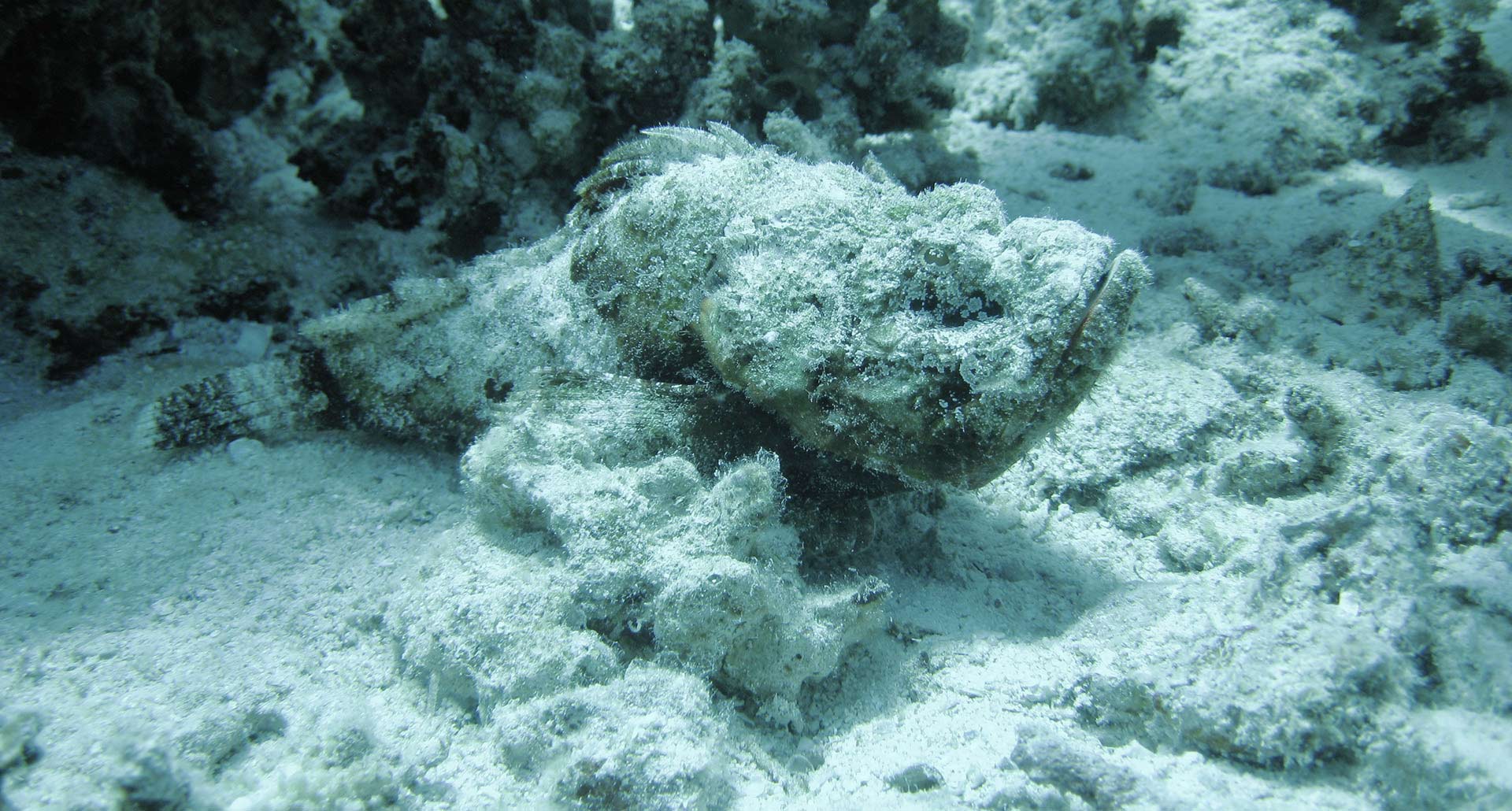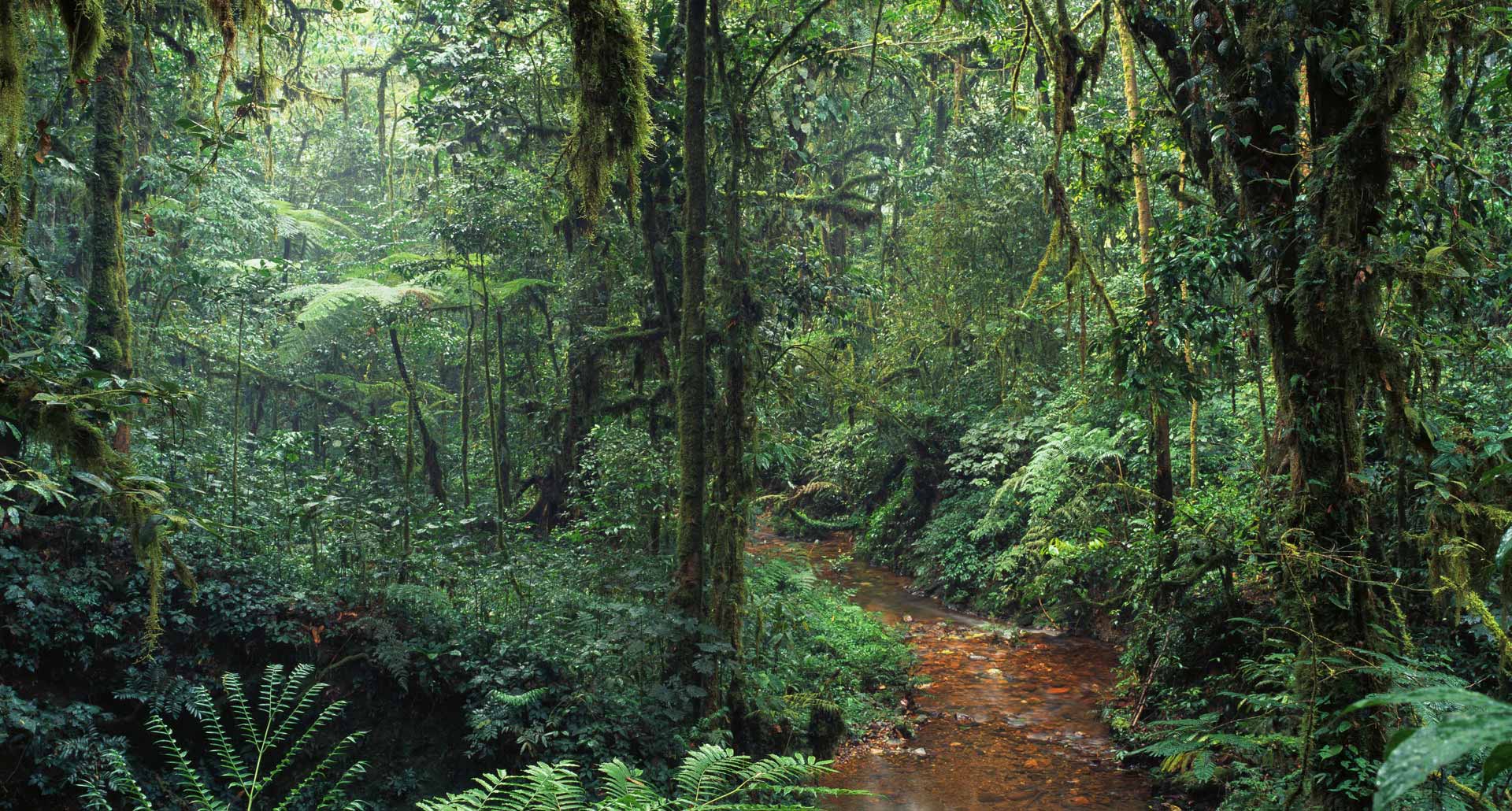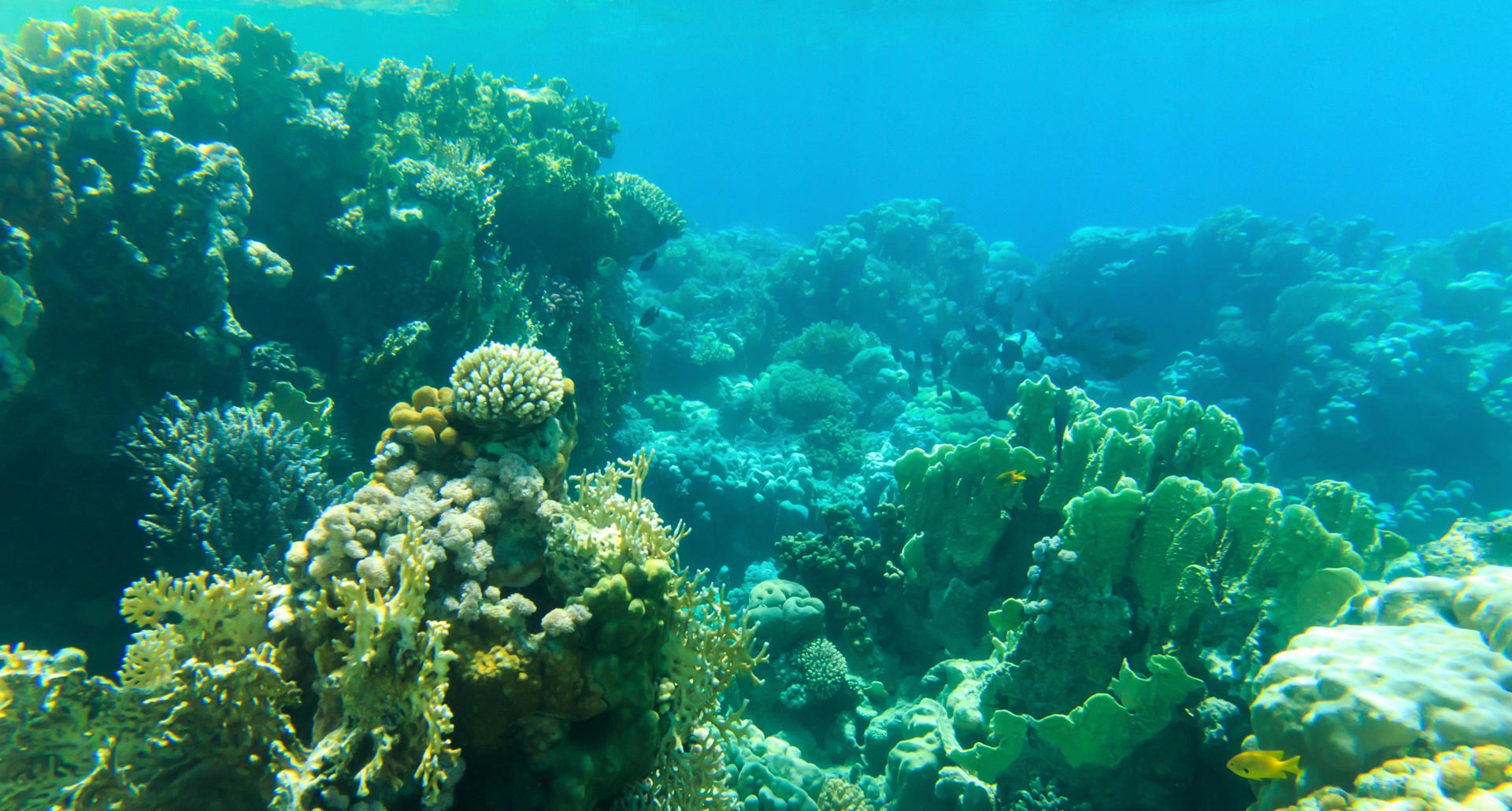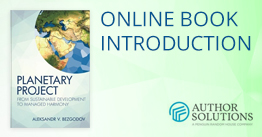The Planetary Project in the Journal “Use and Protection of Natural Resources”
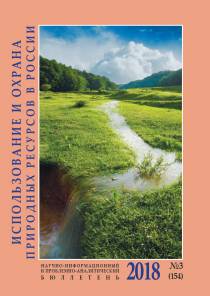 The article “The Planetary Project: The Basis for a New World Development Agenda” by Dr. Sergei Ivanov, (PhD in Economics), Head of the Laboratory for Studying Socio-Economic and Political Processes of Modern Society of St. Petersburg University was published in the Russian academic journal “Use and Protection of Natural Resources”.
The article “The Planetary Project: The Basis for a New World Development Agenda” by Dr. Sergei Ivanov, (PhD in Economics), Head of the Laboratory for Studying Socio-Economic and Political Processes of Modern Society of St. Petersburg University was published in the Russian academic journal “Use and Protection of Natural Resources”.
THE PLANETARY PROJECT: THE BASIS FOR A NEW WORLD DEVELOPMENT AGENDA
Sergei Ivanov, PhD in Economics, St. Petersburg University
This paper investigates sustainable development as a new philosophy and model for organizing the life of society. The significance of the concept of sustainable development for Russia is described. The importance of measuring sustainable development is highlighted. The Planetary Project is presented as a new approach to the sustainable development of countries and regions. A research school is being shaped as part of the Project to address global issues and rescue the biosphere. Keywords: sustainable development, the United Nations, nature, the Planetary Project, human potential, ecology, biosphere, measurement, indices, model.
The importance of sustainable development
The world community first named sustainable development a strategic imperative at the United Nations Conference on Environment and Development (UNCED), also referred to as the Rio de Janeiro Earth Summit, in 1992. The balanced economic, social and environmental development of human civilization became the 21st century’s agenda.
Two decades later, the United Nations Conference on Sustainable Development, or Rio+20, specified and explained the main statements of sustainable development in the resolution The Future We Want. The priorities were as follows:
- to transit to green economy and eradicate poverty in the world;
- to protect the world ocean from unreported and unregulated fishing, the destruction of marine ecosystems, and the negative impact of climate change;
- to carry out an urban development policy that provides better living conditions for people;
- to use renewable energy sources;
- to manage forests more effectively;
- to use water resources more effectively;
- to prevent the desertification of the Earth.
New landmarks were proposed in the implementation of sustainable development policy: ‘green economy’, ‘food safety’, ‘sustainable cities’, ‘the rational models of consumption and production’, and the world based on the principles of justice, the target of sustainable development.
In September 2015, the General Assembly of the United Nations adopted Resolution 70/1 Transforming Our World: The 2030 Agenda for Sustainable Development. The resolution set 17 strategic goals to guarantee the prosperity of population and save the Earth’s resources. Each of these goals had specific benchmarks to be achieved within a 15-year period.
The implementation of sustainable development policy is especially urgent in Russia. Speaking at a State Council Meeting on Russia’s Environmental Development for Future Generations held in December 2016, President Putin said, “In a number of areas, the environmental stress has reached a critical point. This costs our economy up to 6 percent of GDP every year, or up to 15 percent if we factor in the health costs”. [1] The meeting provided other facts such as:
- industrial and consumption waste is increasing; it totals over 30 billion tons now;
- the situation with hazardous emissions remains critical: half of the city population breathes highly polluted air;
- rubbish is disposed of without any order and landfills take up almost 48,000 hectares;
- a significant part of open water is classified as polluted or extremely polluted;
- seven percent of residents have no access to quality drinking water;
- soil quality is worsening in nearly all regions.
The Sustainable Society Index put Russia in 106th position in 2012. [2]
Climate change is another external challenge affecting people’s health and economic development. The world community realized the negative influence of climate change on social and economic development in the late 20th century. As a result, an Intergovernmental Panel on Climate Change was set up to carry out regular scientific assessment of climate change and put forward adaptation and mitigation options.
In the mid 1990s, the United Nations passed a Framework Convention on Climate Change, which was later followed by the signing of the Kyoto Protocol. The international agreement urged to reduce greenhouse gas emissions as the main reason for negative climate change. Russia ratified the Kyoto Protocol, actively advocated it, and strictly adhered to its standards and requirements. In 2009, the President of Russia approved the Climate Doctrine of the Russian Federation. [3] The doctrine established the purpose, objectives, principles, main directions and subjects of Russia’s climate change policy.
Why is it important to evaluate (measure) sustainable development?
The selection of criteria and indices for measuring sustainable development is one of the main issues. There are different measurement methods and indices. The Organization for Economic Cooperation and Development (OECD) uses ten key indicators, the USA about 40 indicators, and the UN Commission on Sustainable Development (CSD) more than a hundred.
Generally, all indicators can be divided into two types. One type of indicators characterizes sustainability in different aspects of life: economy, ecology, society, institutions, and more. The other type attempts to aggregate evaluation in different areas in order to produce a general (integral) index. The Human Development Index (HDI) can be one such example.
Many researchers are proposing the nature’s capacity index as the economic criterion of sustainable development to be compared at the international and regional level.
Attempts to develop the general integral indicator of sustainable development have not succeeded for several reasons. Firstly, such an indicator should consider a lot of primary data and involve many indices from different aspects of life. Secondly, there is no consensus regarding what is sustainable development and how to define ‘sustainability’.
Scholars use terms such as ‘stability’, ‘equilibrium’, ‘constancy’, ‘invariability’, ‘steadiness’ as synonyms for the concept of sustainability. In regional economics, sustainability means the crisis-free, progressive, environmentally and economically balanced development of countries, regions, or cities.
Thus, sustainable development is a dynamic category. What characteristics make it dynamic?
In our view, the main ‘generic’ characteristics of sustainable development are: steadiness, intensity and balance (environmental and economic, social and economic, and so forth).
Steady development is the most important sign of sustainability. This means that an area develops without fluctuations with smoothly growing key indices. Steady development is characterized by a stable and even growth of social and economic indices. Gradually growing indices without sharp fluctuations guarantee social stability and make long-term planning possible.
Intensive development implies an area’s potential for fast development. In comparison to other indices, intensity shows how fast development influences the general social and economic dynamics of countries, regions, and large metropolitan areas. It also makes it possible to forecast an area’s ranking in the whole system of sustainable development indicators.
Balanced development is the natural and important parameter of sustainability. This component makes it possible to prevent overestimated evaluation of sustainable development in countries and regions with misbalances in the pairs ‘economy vs. social life’, or ‘economy vs. the environment,’ or between several indices within one evaluation cluster.
Shaping evaluation clusters is another challenge, which is not part of the present study. We will just outline key requirements index systems should meet. They are as follows:
- sustainable development indices should cover the most important social aspects for the entire population (health, education, employment and working conditions, distribution of goods and services, time and leisure management, the physical environment, individual safety and justice, social opportunities and social security, access to the achievements of culture, and social activity) and consider special categories of population and social groups;
- the index nomenclature should correspond to the strategic goals of countries, regions, and territories (in this case, it would be advisable to consider the 17 strategic goals mentioned in Resolution 70/1 Transforming Our World: The 2030 Agenda for Sustainable Development);
- the objective characteristics of sustainable development should be augmented with subjective ones; among the latter, the subjective indices of motivation should be specified such as: needs, interests, values, satisfaction, etc.;
- indices should work as a system applicable to the object of management at any level;
- the system and separate indices should meet the requirement of normativity (prescribed goals) and each index should correlate to the normative value (standard);
- the system of indices should meet the requirement of possible minimization and aggregation; a governance authority should be able to use combined indices for regulating the social and economic development of the territory;
- most combined indices of sustainable development should allow for disaggregation within different social and economic and social and demographic groups of population.
Also, the system of indices should conform to international statistics reporting formats.
Planetary project as the evolution of sustainable development
Attempts to implement sustainable development policies have not become as successful as to become the turning point in addressing global issues and tackling the systemic crisis of civilization. On the contrary, they have faced with problems that turned out to be partially or completely insoluble, at least, in terms of sustainable development. Global institutions have officially carried out sustainable development policies for more than 20 years now. However, the general model of the economy has not been developed yet; nor has the environmental and social policy. In fact, global issues have only become aggravated.
The most significant, complex and widely spread challenges for sustainable development are: demographic issues, the eradication of poverty, and environmental issues.
The contradictions revealed by sustainable development testify to an internal logical paradox of the concept. The conflict between national interests and the interests of the world community is one of them.
Giving sustainable development its due respect, we cannot help but see that failures and difficulties in its implementation are not caused by practical issues but rather by the drawbacks of its ideology itself. This concerns the theoretical and methodological foundations of sustainable development.
The Planetary Project presents an alternative idea of sustainable development. This idea is shared by renowned Russian and foreign scholars, politicians, and public figures. The Planetary Development Institute founded by Dr. Aleksandr Bezgodov is developing the ideology and implementation of the Planetary Project.
The Planetary Project is simultaneously the scientific theory and practical program for shaping a new economic base of a poly-centric world. In such a world, each country will be able to occupy a worthy place in the global distribution of labor and reach a high standard of living.
The Planetary Project is aimed to: consider the most important global issues; acknowledge their fundamental solvability; postulate a need for the worldwide universal human integration; formulate its key theoretical hypotheses; work out the main principles of planetary integration; acknowledge the feasibility of the environmentally focused and noosphere-oriented human civilization harmonized with nature; determine the means and mechanisms to address global issues and fulfill planetary integration; forecast and program the prospects for a planetary civilization in accordance with a new evolutionary scenario. [4-6]
The main tasks of the Planetary Project are as follows:
- to mold the philosophy and scientific theory for rescuing the biosphere and addressing global issues; to unite humanity as the planetary association aimed to create the biocompatible noospheric civilization;
- to engage the global research potential and advances in various fields of knowledge;
- to develop theoretical and practical ideas, models and methods for a new economy based on the rational use of natural resources, resource efficiency and replacement, and a fair wealth distribution system based on incomes from planetary rent;
- to develop legal norms, political, economic and administrative mechanisms for the institutional infrastructure of planetary management;
- to initiate a worldwide public movement for rescuing the biosphere, tackling current global issues, upholding social justice, bolstering global human integration, the creation of planetary civilization and its harmonious development underpinned by the values capable of uniting humanity;
- to work out the humanitarian agenda for Expo 2020 Dubai including economic, social, political, legal and cultural issues for special events, academic and public discussions, and other formats;
- to launch the unique international School of interdisciplinary planetary studies and design in the Emirate of Dubai;
- to create and contribute to a Planetary Bank of intellectual resources;
- to implement solutions in the fields of the world economy, sociopolitical processes, management, international and national legal systems, and cross-cultural communication.
One the main scientific and methodological tasks of the Planetary Project is to develop indicators to adequately measure sustainable development. This should reflect the concept’s key characteristics, including the steady, intensive and balanced development of territories (countries, regions, large agglomerations, and cities).
Thus, the Planetary Project is aimed to create a comprehensive model of sustainable development that will be presented at an Expo 2020 Dubai international conference. The model will underpin the system of aggregated indicators of sustainable development resulting in the integral index that will be recommended to the United Nations for international rankings.
Bibliography
- State Council meeting on Russia’s environmental development for future generations. 27 December, 2016. Available at: http://en.kremlin.ru/events/president/news/53602.
- Reiting stran mira po indeksu ustoichovosti obshchestva. Analiticheskii portal ‘Gumanitarnye Tekhnologii’ [The Sustainable Society Index Rating. Humanitarian Technologies Analytical Portal]. Available at: https://gtmarket.ru/ratings/sustainable-society-index.
- Climate Doctrine of the Russian Federation. Available at: http://en.kremlin.ru/supplement/4822.
- Bezgodov, A. V. Planetarnaia renta kak instrument resheniia globalnykh problem [Planetary Rent as an Instrument for Solving Global Problems]. St. Petersburg: Peter, 2018. 512 p.
- Bezgodov, A. V. Planetarnyi proekt: ot ustoichivogo razvitiia k upravliaemoi garmonii [Planetary Project: From Sustainable Development to Managed Harmony]. St. Petersburg: Peter, 2018. 272 p.
- Bezgodov, A. V., Barezhev, K. V. Nachala planetarnoi etiki v filosofii russkogo kosmizma [The Origins of Planetary Ethics in the Philosophy of Russian Cosmism]. St. Petersburg: Peter, 2018. 544 p.

